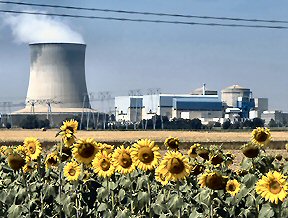I applied for this particular fellowship because it lines up perfectly with something that I already do in my classes: debating. Each semester, my AP chemistry students choose a science article and write 5 thought-provoking questions about it. I copy the articles and questions and pass them out one week before the debate. Then on Friday afternoons, the student who chose the article for that week becomes the debate leader and for 30 minutes, they discuss the article.
I love this assignment because it forces my students (and me!) to stay current on science news. It also encourages literacy skills as they read articles, analyze them and then voice their opinions to their peers. Plus, it doesn’t require much prep work from me!! And they tend to love the chance to talk to each other!!
However, I have issues with debates. How do I assess the students? Count the number of comments they make? Or should I try to rank the quality of their comments? What about those extremely shy students or the ones who can barely speak English? How do I keep everyone involved? And what about when the controversial topics get TOO sticky or not “politically correct”?
Because I don’t feel I have mastered the skill of holding classroom debates, I applied for this fellowship: The Science of the Matter. I am developing a high school component for the NC Science Festival that involves a “Decision Room”, where students debate a current science issue. I am working on creating guidelines for teachers, assessment tools, discussion questions to match articles, and rubrics. I will be piloting the “Nuclear Energy” discussion in my own chemistry classes this fall when I teach nuclear chemistry. It is a controversial topic and it aligns with my curriculum, so I’m hoping it will work out well to incorporate it into my lessons for that unit.
If any of you have suggestions or tips or ideas for holding a successful debate with high school students, I’d love to hear your thoughts! And if you have things that DID NOT work, I’d love to hear those too! Thanks!

Denise:
What a creative and important project. The ability to debate and articulate ideas, thoughts, and contrasting views and opinions is a skill that so many students miss out on. Students need constant review of these types of communication techniques.
As far as assessing your students’ remarks, if you use a rubric, maybe you can count whether or not they use topic specific vocabulary in the right context in part of their responses. Just a thought for now. Good luck!
LaTanya
I love how you do debates in science! How cool. Look up “Socratic Seminar”– that is the model I use. They can prepare for it for homework the night before so shy students feel more confident. There is also a tracking tool so more talkative students get cut off after a while. I have tons of resources I can send you if you want.
Very shy students or ones with anxiety or ELL students may hold a much smaller seminar with me after school to get their grade. Due to all the prep, I only do it every few weeks, but the kids like it.
Thanks for the suggestions! Please send me any and all resources you have! My email is dfurr@wcpss.net. I am currently creating the lesson based on a “socratic seminar” idea. It seems like the best way to engage 30 students during a debate. I’m glad to hear that you’ve had success with it!
Hello Denise,
I think your incorporation of reading, speaking, thinking and learning to debate are wonderful components of your chemistry class. I would guess that your students will gain life skills and remember the debates for years. Asking someone to review material, think about it, form an opinion and express that opinion is a wonderful training. I learned about Socratic Seminars from our social studies coordinator who has used them with students in in PD very successfully.
I know that there are formal rules of debate that you might reference (i.e. the requirement to counter previous points, amount of turns per side, etc). One thing you might add would be the requirement, from time to time, for students to defend a cause they don’t agree with – to learn empathy, the value of objective research, being unemotional, defending a position, etc. I think that, as adults, we are sometimes thwarted when we need to defend our beliefs but our emotions get in the way.
It’s to see your members of cohort wanting to jump in and share ideas on your project. That is what we strive for! Can’t wait to see this project in practice.
Amneris